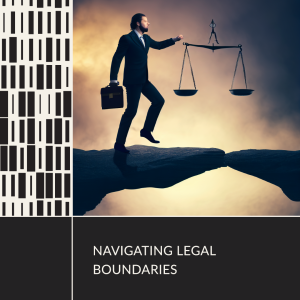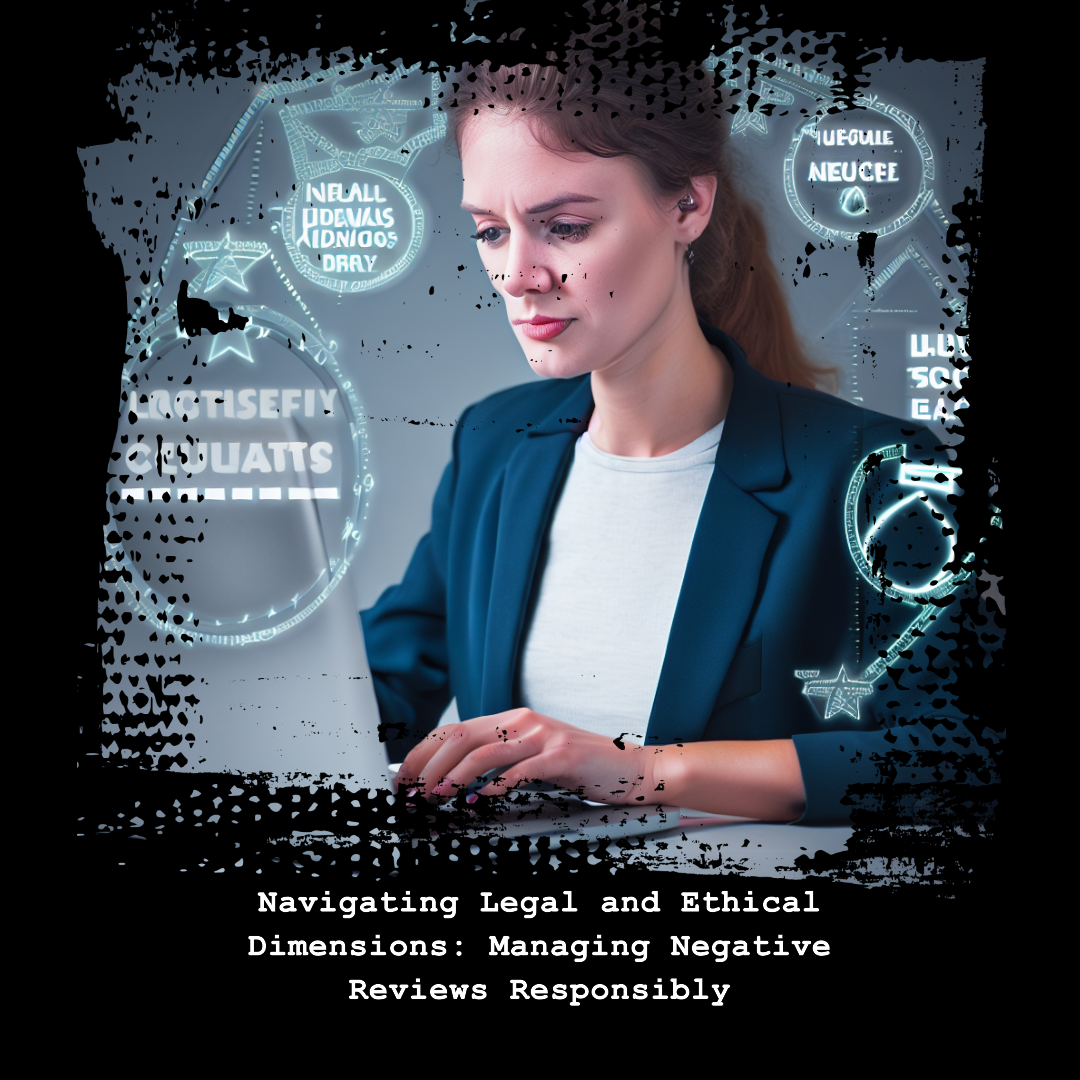Online evaluations have developed into a potent weapon in the current digital era that may influence the success and reputation of companies in a variety of sectors.
Are businesses legally obligated to respond to negative reviews?
No, you are not required by law to address unfavorable evaluations. However, responding to customer complaints in a transparent and moral manner can help you maintain a good reputation and consumer trust.
Negative reviews may have the opposite impact as favorable ones, which is to increase reputation and attract clients. Addressing consumer complaints while upholding legal and ethical requirements must be balanced carefully when handling unfavorable feedback.
In this article, we will explore the intricate landscape of managing negative reviews responsibly, taking into account both legal obligations and ethical principles.
The Significance of Online Reviews
 Understanding the importance of internet reviews is crucial before exploring the legal and ethical ramifications. They act as a forum for consumers to freely discuss their experiences and ideas, which has an impact on prospective customers’ purchase choices. Particularly negative evaluations might raise red flags since they risk harming a business’s brand and hindering its expansion.
Understanding the importance of internet reviews is crucial before exploring the legal and ethical ramifications. They act as a forum for consumers to freely discuss their experiences and ideas, which has an impact on prospective customers’ purchase choices. Particularly negative evaluations might raise red flags since they risk harming a business’s brand and hindering its expansion.
Addressing Negative Reviews Ethically

Transparency
One of the key ethical considerations in handling negative reviews is transparency. Businesses should avoid deleting or altering negative reviews to maintain authenticity and trust. Instead, respond to negative feedback openly, acknowledging the concerns raised by the customer.
Empathy
Responding empathetically to negative reviews demonstrates that the company values customer feedback and is committed to resolving issues. An empathetic response can help defuse a potentially tense situation and show other customers that the company cares about their experiences.
Problem Resolution
Ethical handling of negative reviews involves actively seeking to resolve the customer’s issue. Provide solutions, offer refunds or replacements where appropriate, and ensure the customer feels heard and understood.
Privacy
It’s crucial to preserve the privacy of the consumer while reacting to unfavorable evaluations. Keep your mouth shut while discussing a customer’s dealings with the business or any personal information.
Navigating Legal Boundaries
 Defamation
Defamation
Negative reviews may sometimes cross the line into defamation, which entails making false claims that damage the reputation of a person or company. The company may be able to file a defamation lawsuit if a review includes inaccurate material that harms its reputation.
Fake Reviews
Some companies could feel compelled to fabricate favorable customer evaluations or blatantly bogus negative ratings of rivals. Such actions might be illegal and in contravention of laws and regulations governing consumer protection.
User-Generated Content
Businesses should be aware of copyright and intellectual property laws while processing user-generated reviews. Without the appropriate credit or authorization, using photos, videos, or text might result in legal problems.
Balancing Legal and Ethical Considerations
When handling negative reviews, businesses must balance ethical considerations with legal obligations. It’s essential to protect the business’s reputation while respecting the rights and opinions of customers.
Best Practices
Promptness
Respond to negative reviews promptly. Timely responses demonstrate your commitment to customer satisfaction.
Consistency
Develop a consistent approach to responding to both positive and negative reviews. This helps establish a professional and ethical online presence.
Internal Guidelines
Establish internal guidelines for responding to negative reviews. Train staff to handle reviews respectfully and ethically.
Conclusion
Navigating the legal and ethical dimensions of managing negative reviews requires careful consideration and a commitment to transparency, empathy, and problem resolution.
By finding the right balance between legal compliance and ethical behavior, businesses can maintain their reputation and foster positive relationships with customers in the digital age.
Remember, negative reviews can be opportunities for growth and improvement when handled responsibly and ethically.
FAQ’s
Can a business delete negative reviews from its online platforms?
While businesses can generally delete reviews that violate platform guidelines (e.g., contain hate speech), deleting negative reviews solely because they are unfavorable may raise ethical concerns about transparency and authenticity.
How should I respond to a negative review without violating privacy laws?
When responding to negative reviews, avoid disclosing personal information about the customer or details of their interactions with your business. Focus on addressing their concerns and offering solutions.
Can I sue a customer for posting a negative review?
Suing a customer for a negative review can be legally complex. If the review contains false information that harms your business’s reputation and crosses into defamation, you might have legal grounds. However, pursuing legal action should be a last resort due to the potential PR backlash.
Is it ethical to ask friends or employees to write positive reviews?
No, asking friends or employees to write fake positive reviews is unethical and violates consumer protection laws. Authenticity and honesty are essential to maintaining customer trust.
How can businesses prevent fake negative reviews from competitors?
Monitor review platforms for suspicious patterns of negative reviews. If you suspect fake reviews, report them to the platform administrators. Engaging in ethical practices and maintaining a strong business reputation can also help counter the impact of fake negative reviews.

